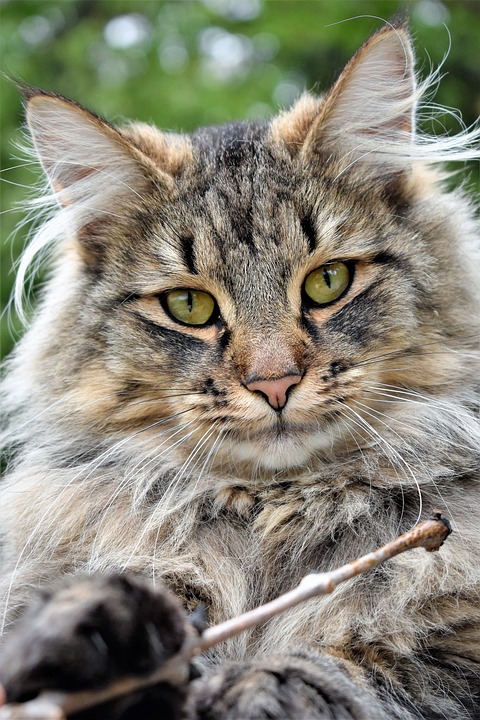Introduction:
Keeping your cat healthy and protected from various diseases is a top priority for any responsible cat owner. One of the most effective ways to ensure your feline friend’s well-being is by following a cat vaccination schedule. In this article, we will explore the numerous benefits of vaccinating your cat and answer some frequently asked questions about cat vaccinations.
Why is Vaccination Important for Cats?
1. Preventing Deadly Diseases:
– Feline Panleukopenia (Feline Distemper)
– Feline Calicivirus
– Feline Herpesvirus (Feline Viral Rhinotracheitis)
– Rabies
– Feline Leukemia Virus (FeLV)
– Feline Immunodeficiency Virus (FIV)
Vaccinations are essential for preventing deadly diseases that can be fatal to cats. Diseases such as Feline Panleukopenia, Feline Calicivirus, Feline Herpesvirus, Rabies, and Feline Leukemia Virus can cause severe illness and even death in cats. Vaccinating your cat helps protect them from these diseases and significantly reduces the risk of infection.
2. Strengthening the Immune System:
– Developing antibodies to fight specific diseases
– Reducing the severity of infections if they occur
– Enhancing overall immune response
Vaccinations work by stimulating the cat’s immune system to produce antibodies that can fight off specific diseases. By vaccinating your cat, you are helping their immune system develop a defense mechanism against potential infections. In the event that your cat does become infected with a disease they are vaccinated against, the severity of the infection is likely to be reduced due to the presence of antibodies.
3. Protecting the Cat Population:
– Minimizing the spread of contagious diseases within communities and shelters
– Preventing outbreaks in multi-cat households
Vaccinating your cat not only protects them but also helps prevent the spread of contagious diseases within communities, shelters, and multi-cat households. By vaccinating your cat, you are contributing to the overall health and well-being of the cat population as a whole.
Understanding the Cat Vaccination Schedule
1. Core Vaccines:
– Feline Panleukopenia (FVRCP)
– Rabies
Core vaccines are considered essential for all cats and are recommended by veterinarians. These vaccines protect against diseases that are highly contagious and can be life-threatening to cats.
2. Non-Core Vaccines:
– Feline Leukemia Virus (FeLV)
– Feline Immunodeficiency Virus (FIV)
– Feline Infectious Peritonitis (FIP)
Non-core vaccines are recommended based on a cat’s lifestyle, environment, and risk factors. These vaccines provide additional protection against specific diseases that may be more prevalent in certain situations.
Frequently Asked Questions about Cat Vaccinations
Q1: When should I start vaccinating my kitten?
A1: Kittens should receive their first set of vaccines at around 8 to 9 weeks of age, followed by booster shots every 3-4 weeks until they are around 16 weeks old.
Q2: Are vaccinations safe for my cat?
A2: Yes, vaccinations are generally safe for cats. The benefits of vaccination outweigh the potential risks of adverse reactions. However, consult your veterinarian if your cat has any underlying health conditions.
Q3: How often do adult cats need vaccinations?
A3: After completing the initial set of vaccinations, adult cats typically require booster shots every 1-3 years, depending on the vaccine and your cat’s lifestyle.
Q4: Do indoor cats need vaccinations?
A4: Yes, even indoor cats should receive vaccinations. They can still be exposed to diseases through open windows, contact with other animals, or if they accidentally escape outdoors.
Q5: Can vaccinations cause any side effects?
A5: Vaccinations may cause mild side effects such as soreness at the injection site or lethargy. Serious adverse reactions are rare but can occur. Always monitor your cat after vaccination and report any concerns to your veterinarian.
Q6: Can an older cat be vaccinated for the first time?
A6: Yes, it is never too late to start vaccinating an older cat. However, your veterinarian may recommend additional precautions and testing depending on your cat’s health status.
Q7: Can vaccinations guarantee 100% protection?
A7: While vaccinations greatly reduce the risk and severity of diseases, they do not provide 100% protection. However, vaccinated cats have a higher chance of surviving and recovering from infections.
Conclusion:
Following a cat vaccination schedule is crucial for maintaining the health and well-being of your feline companion. By preventing deadly diseases, strengthening the immune system, and protecting the overall cat population, vaccinations play a vital role in ensuring a long and happy life for your beloved cat. Consult with your veterinarian to develop a suitable vaccination plan tailored to your cat’s specific needs.








